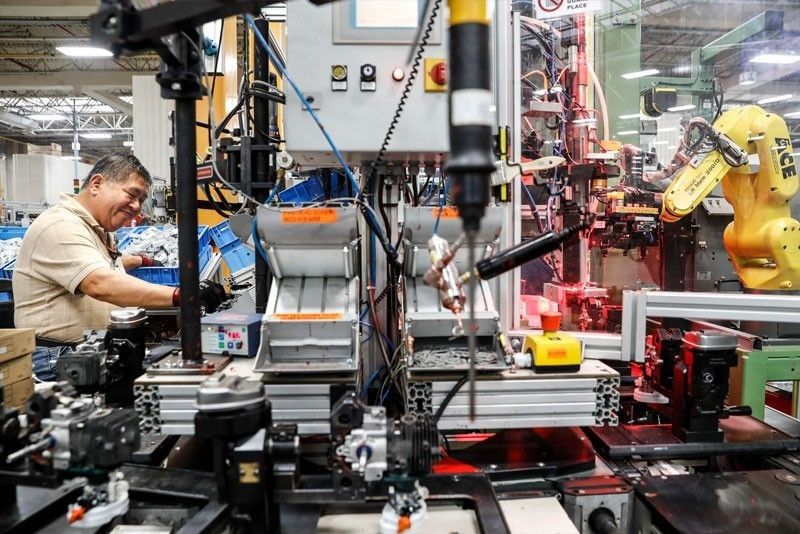Manufacturing extends decline in January 2019 — PSA

MANILA, Philippines — Manufacturing extended its drop in January, although at a more moderate pace, as declines in output were registered in most industry groups, the Philippine Statistics Authority (PSA) reported yesterday.
Factory output, as measured by the Volume of Production Index (VoPI), registered a year-on-year decline as it contracted by 4.1 percent in January, extending the 10.1 percent fall in December 2018 and reversing the 10.8 percent growth in January 2019.
During the month, 12 out of the 20 major industry groups registered annual declines. Reduction in output was most defined in furniture and fixtures as well as basic metals.
The Value of Production Index (VaPI), likewise, contracted by 0.7 percent in January from negative 9.3 percent in December 2018 and 10.9 percent growth in January 2018.
The National Economic and Development Authority (NEDA) said easing inflation and the appreciation of the peso are expected to take off some of the input cost pressure in the manufacturing sector.
The shift in agricultural policy toward liberal importation of rice would also help lower the cost of production, it added.
“Manufacturing growth outturn in January 2019 showed a moderate improvement coming from December 2018. Nevertheless, with our recent progress in agricultural policy, we can expect manufacturing to recover further. The decline in prices of rice and agricultural commodities brought about by the appreciation of peso and the increase in supply of rice imports will improve consumer outlook and prop up domestic demand,” said Socioeconomic Planning Secretary Ernesto Pernia.
He said there are also other measures that need to be pursued in order to attract new investments and reduce the cost of expanding production capacity of existing firms
These measures include the full implementation of the Ease of Doing Business-Efficient Government Service Delivery Act of 2018 to yield significant improvements in the business and regulatory environment across all levels of governance.
Also, the economic team is eyeing the passage of the amendments to the Public Service Act to encourage competition in the air, maritime and road transport, as well as logistics services, and the passage of the proposed amendments to the Foreign Investments Act of 1991.
The proposed amendments to the Retail Trade Liberalization law will effectively reduce barriers to the entry of foreign investments by easing the equity and capitalization requirements and will contribute to the manufacturing sector covering small and medium-sized enterprises.
“These measures are vital considering that manufacturing is expected to be dampened by less optimistic business and consumer outlook in the first quarter of the year. Higher domestic oil prices, rising adjustment in electricity rates, and weather disturbances are expected to exert upward price pressures on the cost of inputs,” Pernia said.
- Latest
- Trending






























